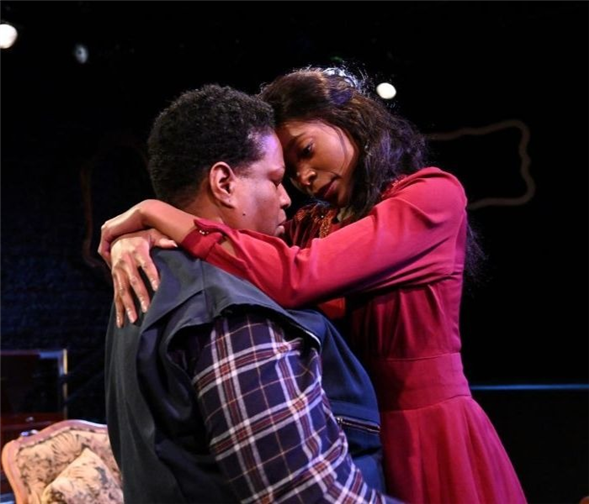Translate Page

Azure D. Osborne-Lee on why Mirrors was a long time coming
---
A drama about black women in '60s Mississippi whose lives are constrained by misogyny and homophobia, Mirrors feels like a play Azure D. Osborne-Lee was born to write. As a black trans theatre artist who grew up in Tennessee and Texas, he longed to see LGBTQ people of color on stage. Initially, he thought he would represent as a performer; then he got hooked on playwriting.
"I've been a theatre person since I was 12, and I was all about that life," he recalls. "My first major role was Squire Trelawney in Treasure Island; I also played the voice of every man who fell overboard or walked the plank. I feel like my approach to gender was exemplified by my desire to be a well-rounded actor. At some point we had a talent show, and I insisted on playing both Beauty and the Beast."
Osborne-Lee's gender exploration continued off-stage as well, which his parents took in stride. "They're scientists," he explains. Yet his folks were not as supportive of his passion for performing, so he studied more practical subjects at the University of Texas at Austin. But eventually, theatre won out. "I performed in Sharon Bridgforth's delta dandi when I was 24, which was a really transformative experience for me," he says of working with the groundbreaking black queer dramatist. "After that I knew I wanted to start writing for the stage, but I didn't know how to approach it."
{Image1}
He ended up earning a master's in Advanced Theatre Practice from London's Royal Central School of Speech and Drama and in 2009, he relocated to New York, where he started playwriting in earnest. "I got here and realized that the audition process just wasn't going to be a healthy one for me," he says. "An internship that I had with Freedom Train Productions came with a free writing workshop. I had a lot of impostor syndrome and anxiety about people finding out I wasn't a 'real' playwright, but ultimately, I try to do things that scare me. I just sort of dove into it."
Mirrors marks a milestone for Osborne-Lee: his first full-length work to receive a full-fledged production. Although he's developed multiple scripts over the past decade at the Trans Lab @ The Public and WP, The Tank, The Flea Theater and JACK, among others, Mirrors winning Parity Production's new play commission in 2018 laid the groundwork for this mounting at Next Door at NYTW. "I've been having a lot of really complex feelings about it," he admits. "It's been a long time coming."
At the outset of Mirrors, the mother of 17-year-old Alma Jean (Ashley Noel Jones) has died and left her in the care of Bird Wilson (Suzanne Darrell), a woman the teen has never met. As the two get to know each other, it becomes clear that Bird and Alma Jean's mom were more than friends. The play's title refers to the shrouded mirrors in Bird's home, a custom followed by many people who mourn. It was that image that inspired Osborne-Lee to write the play.
"I realize there's a lot in my brain that's been packed in from reading a lot," he says. "Sometimes I don't really know where the reference is coming from, but it's kind of like a thread, and I try to just pull it."
Osborne-Lee's approach to playwriting combines his lived experience, imagination and the academic habits he developed in college and grad school. "I really love doing research; that's a primary part of my writing," he says. Mirrors covers cultural and emotional terrain that he knows intimately, yet because it's set 60 years in the past long before he was even born, he knew he needed to do his homework.
"I went to the library and checked out as many books as I could," he says. "I feel like you need to know a lot more than necessarily gets overtly included—your brain needs those things to make connections."
Mirrors is about past trauma and present grief, but it also has hope for its marginalized characters and their ability to experience love and happiness. It's a reflection of Osborne-Lee's own "complex feelings" about seeing his work fully realized.
"Black people have to build our capacity for joy, because we have a tremendous capacity for pain," he observes. "Self-sabotage comes when you're not ready to receive what you asked for, to receive blessings."
---
TDF MEMBERS: At press time, discount tickets were available for Mirrors. Go here to browse our current offers.
Regina Robbins is a writer, director, native New Yorker and Jeopardy! champion. She has worked with several NYC-based theatre companies and is currently a Core Company Member with Everyday Inferno Theatre.
Top image: Suzanne Darrell and Kayland Jordan in Mirrors. Photo by John Quilty.